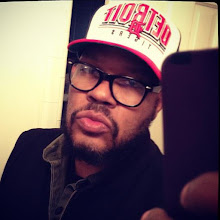
Ten years ago, Daft Punk exploded out of France to conquer the world's dancefloor with its thrilling combination of Detroit techno, Chicago house and classic disco influences. The glare of the duo's success illuminated a burgeoning late-'90s electronic scene percolating across its home country, rich with artists such as Motorbass and Cassius. Today, it's a parallel situation as dynamic DJ duo Justice (Gaspard Augé and Xavier de Rosnay) leads a new sonic scene out of France, giving shine to its label Ed Banger Records and other French acts like Uffie and SebastiAn.
“It's really hard to say if there's something unique or special happening in France right now,” shrugs de Rosnay the afternoon after a wildly received show in Brooklyn for the 2006 edition of the CMJ conference. “We've only been together for three years, so this is all new to us.”
In those three years, Justice has earned a lofty reputation as remixer du jour with its big, abrasive bass blasts and crunchy, distorted rhythms. The remix of Simian's “We Are Your Friends” is a worldwide underground smash, made even more notorious when the video won the MTV Europe award for Best Video over perpetual sore loser Kanye West, who rushed the stage in protest. The duo's first proper single, “Waters of Nazareth,” is a grinding dance track powered by heavy-metal energy and decidedly religious overtones.
“I don't know how our music ended up sounding the way it does,” de Rosnay ponders. “We are not big fans of techno music. We're much more into pop music, really. But when we make tracks, what comes out sounds like the guys from Chic getting their asses kicked by Slayer. As for ‘Waters of Nazareth,’ the idea was to blend electronic music with Christian music, since both are powerful and made for the masses. We wanted it to be big like that.”
Currently putting the finishing touches on the group's debut album, expected by the middle of 2007 on Vice, de Rosnay says to expect “lots of disco, given the Justice touch.”
“We make dance music on computers because it's easier than struggling with a guitar,” he reasons. “We tried to do pop music, but it just didn't sound right on a computer. We have lots of drum machines and classic pieces like a Roland Juno-106, but everything is run through the computer. Most of our music is done on Cubase and GarageBand. Those programs work really well for us.”
(Originally published in Remix, 1/07)

0 comments:
Post a Comment